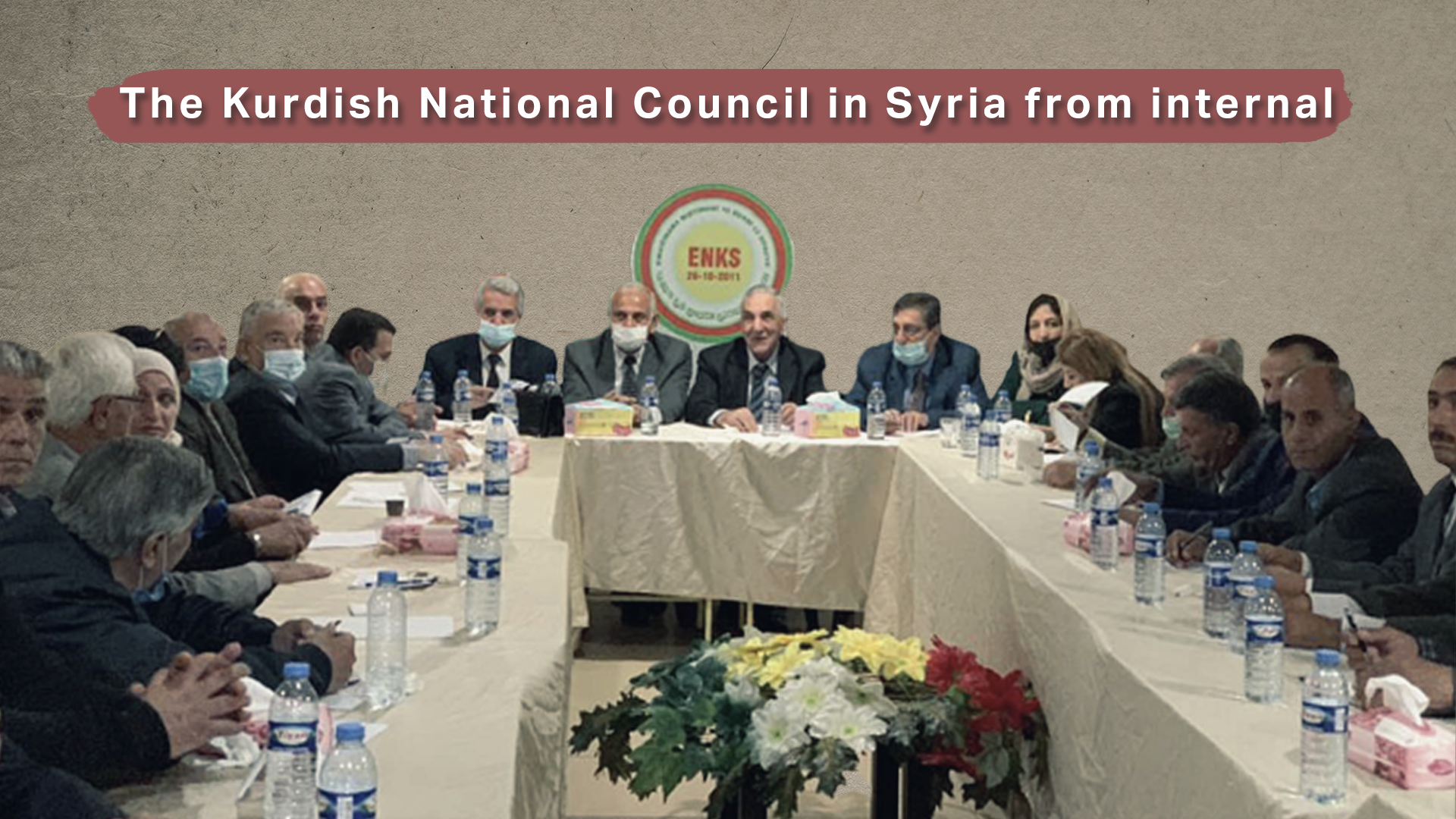The Kurdish National Council in Syria from internal

The political scene in northern and eastern Syria is witnessing a state of suspicious silence, which affects a segment that was vocal throughout the Syrian crisis, but this segment represented by the parties affiliated with the Kurdish National Council in Syria (ENKS), despite the changes the area witnessed from attacks by ISIS and the Turkish state, and the threats that were issued from time to time by the Syrian regime and its Russian and Iranian allies, did not issue any reactions or any clear position.
Since the beginning of this year, the ENKS’ movements have been limited to the statements of its leaders such as Abdulhakim Bashar, Vice President of the opposition Syrian National Council (SNC), and member of the Foreign Relations Committee Ibrahim Berro, about the absence of any violations in the areas under the control of the Turkish occupation, and stressing the need for the return of the displaced from the areas of Sere Kaniye (Ras al-Ain), Girê Spi (Tel Abyad) and Afrin in the presence of the Turkish occupation. Of course, this call for return comes within the context of the desire to consolidate relations the SNC following the Turkish-Qatari endeavors to reactivate the Syrian opposition and revive it in proportion to the current stage.
As for the ENKS internal situation, a complexity and ambiguity of the political atmosphere can be noticed, in addition to the instability that it is going through at the present time. On the other hand, there is more than one current within the ENKS that is trying to exclude and marginalize the other, represented by the Kurdistan Democratic Party-Syria (PDK-S) and the Kurdistan Yekiti Party-Syria, led by Hajar Ali.
On the other hand, the confusion and inconsistency the ENKS is going through have prompted some experienced and influential people in the decision-making center within the ENKS to delay and procrastinate in convening the general conference of the council. Also, what is remarkable about the ENKS’ moves is the continuous absence of speeches that it used to launch on a daily basis regarding the intra-Kurdish dialogue.
We can conclude by saying that the ENKS is going through a difficult and extremely complicated phase due to different positions, the divergence of opinions regarding the percentage of representation and orientation, and the different loyalties. It is possible that the coming period will witness the departure of some parties within the Council and the settlement with the Autonomous Administration with the aim of accepting it as it is.




